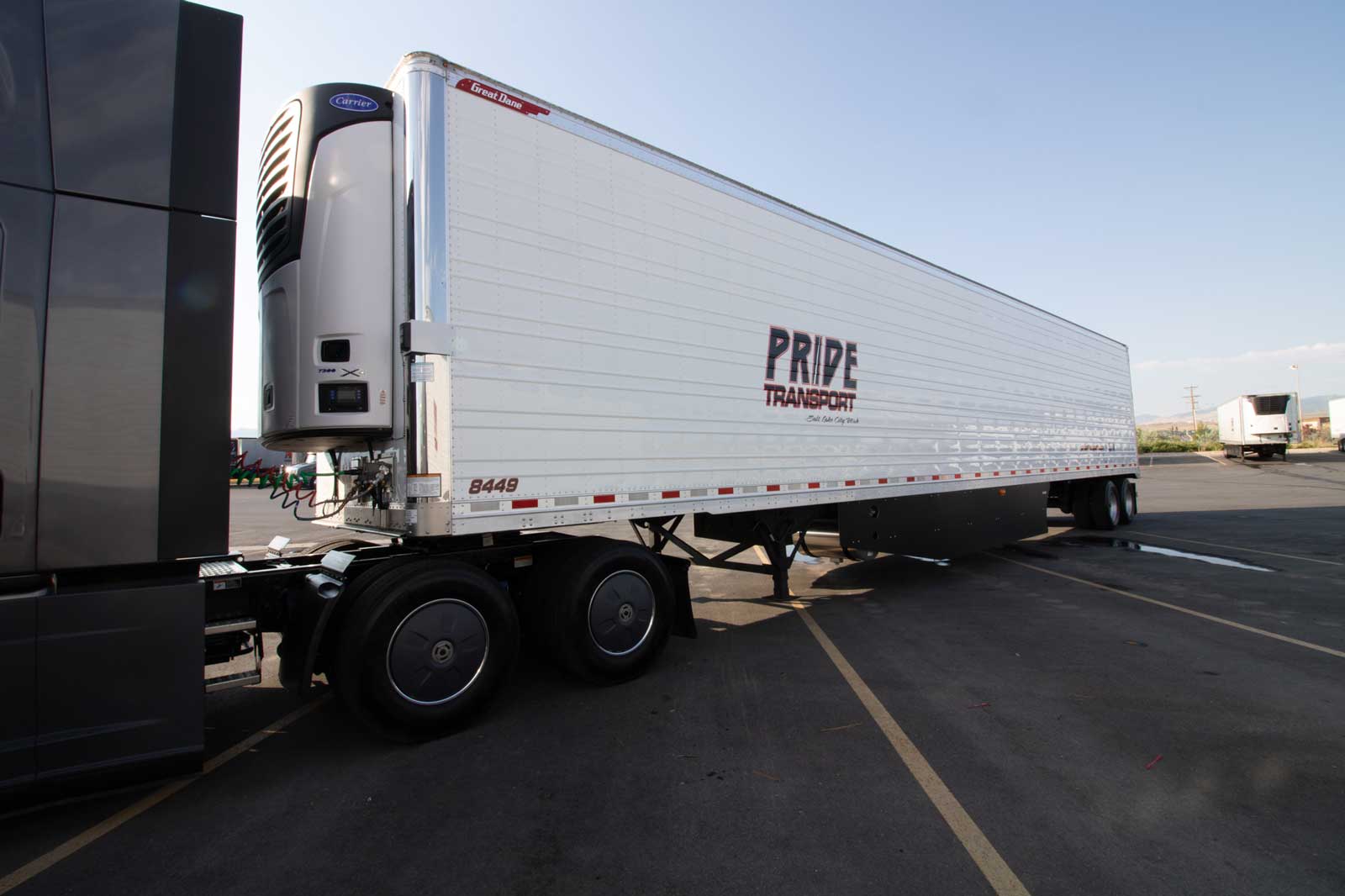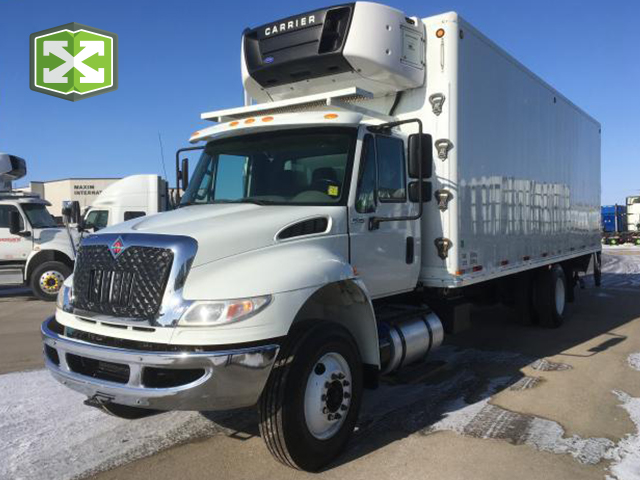Choosing the Right Transportation Refrigeration System for Your Fleet
Selecting an appropriate transport refrigeration system for your fleet is a crucial decision that can considerably impact operational performance and item stability. It requires a thorough understanding of your particular refrigeration needs, consisting of temperature level demands and shipment schedules.
Understanding Your Refrigeration Requirements
When choosing a transportation refrigeration system, recognizing your specific refrigeration needs is vital to ensuring product quality and compliance with market requirements. Different aspects have to be considered to determine the most suitable system for your operation. These include the sort of products being carried, their temperature demands, and the duration of transit.
For perishable goods, such as fresh produce or pharmaceuticals, precise temperature control is critical. Understanding the temperature range needed for each and every item permits the option of a system that can maintain those conditions regularly. Additionally, consider the regularity of distributions and the range traveled; longer journeys might demand systems with improved insulation or backup power options to avoid temperature level variations.

Furthermore, the capability of the refrigeration system ought to align with your load dimension. By extensively analyzing these variables, you can make certain that your selected transport refrigeration system efficiently meets your operational demands and keeps item stability.
Types of Transportation Refrigeration Equipment
Picking the ideal sort of transport refrigeration system is critical for ensuring the secure transportation of temperature-sensitive goods. There are numerous systems readily available, each created to meet specific demands and applications.
These systems are frequently preferred for their efficiency and reduced initial expenses. Another choice is the main refrigeration system, which serves several areas or cars from a solitary compressor unit.
Furthermore, there are self-supporting refrigeration systems that incorporate the compressor and evaporator in one package. When room is limited, these units are suitable for smaller cars or. For specialized applications, such as moving pharmaceuticals or perishables, cryogenic refrigeration systems might be made use of, employing liquid nitrogen or co2 to keep ultra-low temperature levels.
Lastly, crossbreed refrigeration systems that integrate diesel and electrical power are becoming progressively preferred, supplying flexibility in energy use and minimizing ecological influence. Understanding these various types enables fleet drivers to make enlightened choices customized to their details operational needs.
Key Functions to Think About
Exactly how can one make certain that a transportation refrigeration system fulfills all operational requirements? To achieve this, several key features must be thoroughly examined. Temperature level control is critical; systems need to supply specific temperature level setups to suit different items, ranging from frozen items to subject to spoiling products.
Energy efficiency is another vital factor to consider, as it affects operational prices. Try to find systems that use advanced modern technology, such as variable rate compressors, to optimize power use without jeopardizing efficiency.
An additional function to assess is the integrity and toughness of the devices. Systems created from top notch materials and made for durability against extreme conditions will certainly decrease maintenance expenses and downtime.
Furthermore, the convenience of maintenance and access of elements can considerably affect operational performance (reefer trucks thermo king). Functions like modular designs or remote tracking capabilities can enhance solution processes
Last but not least, compatibility with existing fleet management software program can improve monitoring and reporting processes. By concentrating on these key functions, fleet operators can make certain that their transport refrigeration systems not just satisfy present needs but likewise adjust to future needs.

Budgeting for Refrigeration Solutions
Reviewing vital functions of transport refrigeration systems is just one component of making certain functional efficiency; budgeting for refrigeration services is equally vital. A well-structured budget plan not only encompasses the first acquisition price yet additionally thinks about long-term functional expenses, including energy intake, maintenance, and potential fixing requirements.
When establishing a spending plan, fleet managers should initially evaluate the complete expense of ownership (TCO) This consists of not only the procurement expenses yet likewise ongoing costs related to sustain effectiveness and the durability anchor of the refrigeration devices. Selecting systems with greater energy effectiveness ratings might yield significant savings with time, alleviating in advance expenses.
In addition, fleet operators need to account for prospective scalability. As businesses expand, the refrigeration requires may alter, demanding upgrades or extra devices. Planning for these future costs can protect against financial stress.
Funding options can likewise play a crucial function in budgeting. Leasing, financings, or outright purchases each have distinctive financial implications, and comprehending these can aid in making an informed decision. Eventually, a thorough budget that thinks about both future and prompt demands ensures that transport refrigeration systems contribute favorably to the total functional performance of the fleet.
Maintenance and Support Options
In the realm of transport refrigeration systems, efficient upkeep and assistance alternatives are essential for ensuring optimal performance and longevity. Regular maintenance is vital to stop failures and keep the honesty of temperature-sensitive freight. It is suggested see page to develop a regular examination timetable with certified professionals that can execute essential checks and fixings on refrigeration devices.
Assistance choices ought to include a robust solution arrangement, covering both regular maintenance and emergency repairs. This ensures that your fleet has accessibility to motivate help, lessening downtime and preserving operational performance. Several makers provide extensive support plans that consist of training helpful hints for your staff, allowing them to do fundamental troubleshooting and maintenance jobs.
Moreover, utilizing remote surveillance modern technology can improve your maintenance approach - reefer trucks thermo king. These systems give real-time data on temperature level and efficiency, allowing for aggressive steps prior to problems escalate. Purchasing training and technology not just increases your fleet's integrity however additionally prolongs the lifespan of your refrigeration systems
Eventually, a strategic technique to maintenance and assistance will secure your investment and make sure that your transportation refrigeration systems operate at peak performance, delivering regular results for your service.

Final Thought
Finally, choosing the proper transport refrigeration system for a fleet requires an extensive examination of particular refrigeration needs, system types, and essential attributes. Focusing on functional effectiveness, energy consumption, and upkeep factors to consider is important for guaranteeing reliability. Additionally, mindful budgeting and preparation for future scalability will add to the lasting success of the refrigeration method. Ultimately, a well-informed choice will enhance item stability and optimize total logistics operations within the fleet.
Selecting a proper transport refrigeration system for your fleet is a vital decision that can dramatically affect functional effectiveness and item integrity.When picking a transport refrigeration system, comprehending your details refrigeration requirements is extremely important to guaranteeing item quality and conformity with sector standards. By completely assessing these aspects, you can make certain that your chosen transport refrigeration system properly fulfills your functional requirements and preserves item honesty.
Inevitably, a thorough spending plan that considers both instant and future demands ensures that transport refrigeration systems add positively to the total operational effectiveness of the fleet.
In verdict, selecting the suitable transportation refrigeration system for a fleet demands an extensive examination of details refrigeration needs, system types, and vital functions.